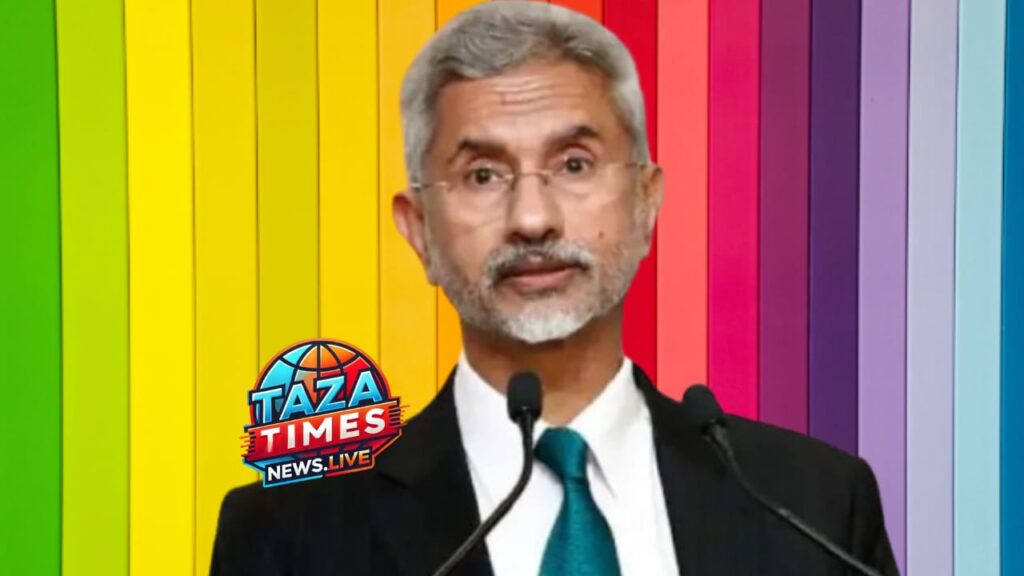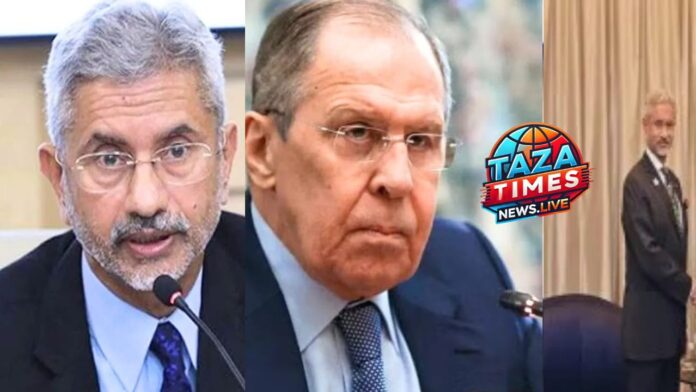Pahalgam terror attack: On Friday, Russian Foreign Minister Sergey Lavrov and External Affairs Minister (EAM) Dr. S. Jaishankar discussed the Pahalgam terror attack. The ‘perpetrators, supporters, and creators of the Pahalgam incident’ need to answer, Jaishankar said.
Sergey Lavrov advocates for India-Pakistan dialogue during meetings with Jaishankar.

India and Pakistan have been urged by Russian Foreign Minister Sergey Lavrov to settle their disagreements amicably through diplomatic and political means. Lavrov talked about the recent decline in ties between New Delhi and Islamabad after the terrorist attack in Pahalgam, Jammu and Kashmir, which claimed 26 lives, as well as the bilateral ties between India and Russia over the phone with his Indian counterpart, Jaishankar.
Table of Contents
The Russian Ministry of Foreign Affairs said in an announcement that “They discussed issues of Russian-Indian cooperation and the aggravation of Indian-Pakistani relations following the terrorist attack in Pahalgam.” Sergey Lavrov called on Islamabad and New Delhi to resolve their differences bilaterally through diplomatic and political means in line with the principles of the 1999 Lahore Declaration and the 1972 Simla Agreement.
According to the Foreign Affairs Ministry, Russian Foreign Minister Sergey Lavrov reviewed the terrorist incident near Pahalgam with Jaishankar over the phone. In his call with Jaishankar, Lavrov urged the resolution of tensions between Delhi and Islamabad.
Telephone discussion between Jaishankar and Lavrov regarding Pahalgam terror attack
“On May 2, a telephone conversation took place between the Minister of Foreign Affairs of the Russian Federation SV Lavrov and the Minister of External Affairs of the Republic of India Jaishankar,” the statement continued. Lavrov demanded bilateral agreements through diplomatic and political channels. “The current Russian-Indian cooperation concerns and the deterioration of Indian-Pakistani relations following the terrorist attack at Pahalgam were discussed by the leaders of the foreign policy ministries. In line with the terms of the Simla Agreement of 1972 and the Lahore Declaration of 1999, SV Lavrov demanded that disputes between Islamabad and New Delhi be resolved bilaterally through political and diplomatic channels,” the release said.
“The ministers evaluated the schedule of upcoming contacts at the highest and high levels,” according to the release.
India prohibits imports and suspends postal services, but Pakistan allows ships to enter.
India imposed a ban on the import of goods from or passing through Pakistan on Saturday, halted mail and parcel exchange, and prohibited Pakistani ships from entering Indian ports as part of new punitive measures against Islamabad in light of cross-border links to the horrific Pahalgam terror attack.
latest Delhi’s latest steps come amid rising tensions between the two countries following last week’s devastating terror incident in Pahalgam, which killed 26 people. On grounds of national security and public policy, the Directorate General of Foreign Trade has issued an immediate ban on the direct or indirect import or transit of all goods originating in or exported from Pakistan, whether freely importable or otherwise permitted, according to a notification.
In a separate notification, the Directorate General of Shipping (DGS) stated that ships flying the Pakistani flag are not permitted to access any Indian ports.
Simultaneously, an Indian flag ship may not visit any Pakistani ports. The DGS stated that the order was issued to ensure the “safety of Indian assets, cargo, and connected infrastructure” and that any exception or dispensation from this order would be reviewed and resolved on a case-by-case basis.
The fresh steps come a week and a half after India declared a slew of punitive measures against Pakistan, including the suspension of the Indus Waters Treaty, the closure of the only operational land border crossing at Attari, and the downgrade of diplomatic ties in the wake of the terror incident.
In retaliation, Pakistan closed its airspace to Indian planes and halted all trade with India, including through third countries. Pakistan has rejected India’s suspension of the Indus Waters Treaty, saying any attempt to halt the flow of water will be viewed as a “act of war”.
India has threatened heavy punishment to anybody engaged in the April 22 incident, citing “cross-border linkages”. In a high-level meeting with top army commanders on Tuesday, Prime Minister Narendra Modi asserted that India’s armed forces have “complete operational freedom” to decide on the mode, targets, and timing of its reaction to the terror assault.
In the first set of retaliatory actions, India withdrew all visas issued to Pakistani nationals. However, visa revocation does not apply to existing long-term visas.
you join our tazatimesnews Telegram Channel
you join our whatsapp channel
Next News Read – Rajnath Singh is expected to miss Russia’s Victory Day parade because of India-Pakistan tensions, according to sources.



